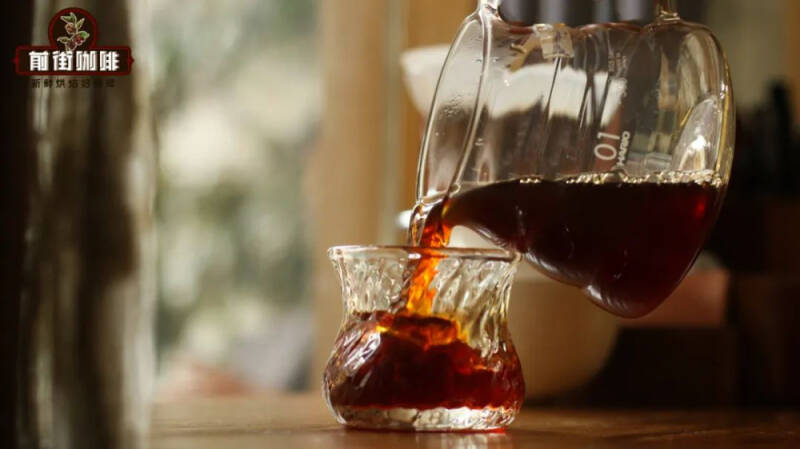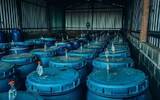How much caffeine is there in a cup of coffee? How many cups of coffee can I drink every day? Does it have any effect on people?
Coffee drinkers are mainly divided into two categories, one is those who drink coffee for the refreshing caffeine, and the other is the glutton who tastes and enjoys the coffee because of its delicacy. Of course, there are also people who feel the taste of coffee because of the former, and gradually turn coffee into a rigid demand.

But there is actually a misunderstanding here! That is, most people who drink coffee for caffeine will think that coffee contains the most caffeine. "after all, they all call it caffeine." Actually this is not so! The truth is, there are more tea! Tea contains twice as much caffeine as coffee beans. So we may not lose sleep after drinking a cup of coffee, but it is true that we will see the sun the next day after a cup of milk tea.
It goes a little too far. I believe people are most concerned about how much caffeine there is in a cup of coffee and how many cups of coffee you can drink in a day. So, let Qianjie answer these questions! The first thing we need to know is, how much caffeine is in coffee beans?
How much caffeine is there in coffee beans? Coffee is a drink made from coffee beans. If you don't know the caffeine content of coffee beans, how can you know the caffeine content in coffee? (although it is a mouthful, but it is true) different varieties have different caffeine contents. At present, coffee varieties with commercial value are mainly divided into two categories: Arabica and Robusta. The caffeine content of Arabica species is about 0.9-1.4% (average 1.3%), while Robusta is twice its "dose", at about 2%-4%, with an average of 3%.
The fluctuation of caffeine content comes from the changes of coffee beans planted in different producing areas and different environments. And varieties with very low caffeine content have been born! They contain about half as much caffeine as regular Arabica, so they are called "decaf". (for more information, please refer to the article "what is decaf".)
So how much caffeine does a cup of coffee contain? Most of my friends must have known how to calculate ~ that's right! Take how many grams of coffee beans are used in a cup of coffee, and then multiply it by the average caffeine content of the variety to measure its peak. For example, if you use 15g coffee powder to extract a cup of hand-brewed coffee, its peak value is 15g × 1.3% (Arabica seed average). The result is that the peak caffeine content of this cup of coffee is about 195mg.
But you know, this is its peak, not its real caffeine content. What do you mean? It is this cup of coffee that needs to extract all the caffeine from the beans in order to have 195mg caffeine! And the amount of caffeine it actually contains will be much smaller than that! Qianjie says this because caffeine is a "soluble substance". There are 30% soluble substances in a coffee bean, but we don't need to extract all of these 30%. We usually only get 18% to 22%! Because if 30% of the soluble matter is extracted, the whole cup of coffee will be miserable. Caffeine belongs to bitter substances, which have been shared before. Although bitter substances are released throughout the extraction process, the rate is relatively slow, much slower than sour and sweet substances. The higher the extraction efficiency of a cup of coffee, the more caffeine there will be. Therefore, according to the normal extraction efficiency, the caffeine content of a cup of coffee extracted with 15g powder should actually be about 60~90mg!
Then, applying the above conclusions to other cooking methods, we can calculate their respective caffeine content according to their extraction time and efficiency.
A cup of cold-extracted coffee (200ml/20g beans / 12:00) contains about 200mg; a cup of coffee in a French kettle (225ml/15g beans / 5 minutes) contains about 120mg; a cup of hand-brewed coffee (225ml/15g beans / 2 minutes) contains about 60-90mg; and an espresso (30ml/15g beans / 30 seconds) contains about 85mg.
Note: lattes, cappuccinos, Dirty, American, etc. are all espresso based espresso, so without reducing espresso, their caffeine content is equal to that of espresso!
How many cups of coffee can I drink that day?
This is a hot topic recently! According to the survey, an adult's daily caffeine intake should not be higher than 400mg, which means that as long as the intake is lower than this value, there will be no problem! Let's take the average caffeine 80mg of a cup of hand-brewed coffee as an example. We only need to limit the daily intake of hand brewing to less than 5 cups, and there will be no problem. (although few people will drink more than five cups)
-END-
Front Street Cafe
No. 10 Baoqian street, Yandun road, Dongshankou, Yuexiu district, Guangzhou, Guangdong province
Important Notice :
前街咖啡 FrontStreet Coffee has moved to new addredd:
FrontStreet Coffee Address: 315,Donghua East Road,GuangZhou
Tel:020 38364473
- Prev

Can you roll this, too? Sipping coffee upside down?!
▲ Click to follow | Daily boutique Coffee Culture Magazine Coffee Workshop Coffee shops often see guests tasting coffee leisurely with plates in one hand and cups in the other. This elegant posture is also the most imaginable coffee posture for the public, but in the coffee circle where anything can be rolled, the coffee posture is often seen.
- Next

How should the champion claw coffee beans be cooked? What should be paid attention to in the Sidra extraction of the estate of the Colombian dividing line?
As the champion bean of the 2022 cooking event, Xizao has always received great attention. But there are a lot of friends in the background reaction, they rushed out of the coffee taste is relatively light, not as full as imagined! Therefore, Qianjie is back to its old business today. I would like to share with you how to rush this hope claw.
Related
- What grade does Jamaica Blue Mountain No. 1 coffee belong to and how to drink it better? What is the highest grade of Blue Mountain coffee for coffee aristocrats?
- What are the flavor characteristics of the world-famous coffee Blue Mountain No. 1 Golden Mantelin? What are the characteristics of deep-roasted bitter coffee?
- Can I make coffee a second time in an Italian hand-brewed mocha pot? Why can't coffee be brewed several times like tea leaves?
- Hand-brewed coffee flows with a knife and a tornado. How to brew it? What is the proportion of grinding water and water temperature divided into?
- What is the difference between Indonesian Sumatra Mantinin coffee and gold Mantinin? How to distinguish between real and fake golden Mantelin coffee?
- What does bypass mean in coffee? Why can hand-brewed coffee and water make it better?
- Unexpected! Ruixing Telunsu lattes use a smoothie machine to foam milk?!
- % Arabia's first store in Henan opens into the village?! Netizen: Thought it was P's
- Does an authentic standard mocha coffee recipe use chocolate sauce or powder? Mocha Latte/Dirty Coffee/Salty Mocha Coffee Recipe Share!
- What is the difference between Vietnam egg coffee and Norway egg coffee? Hand-brewed single product coffee filter paper filter cloth filter flat solution!

